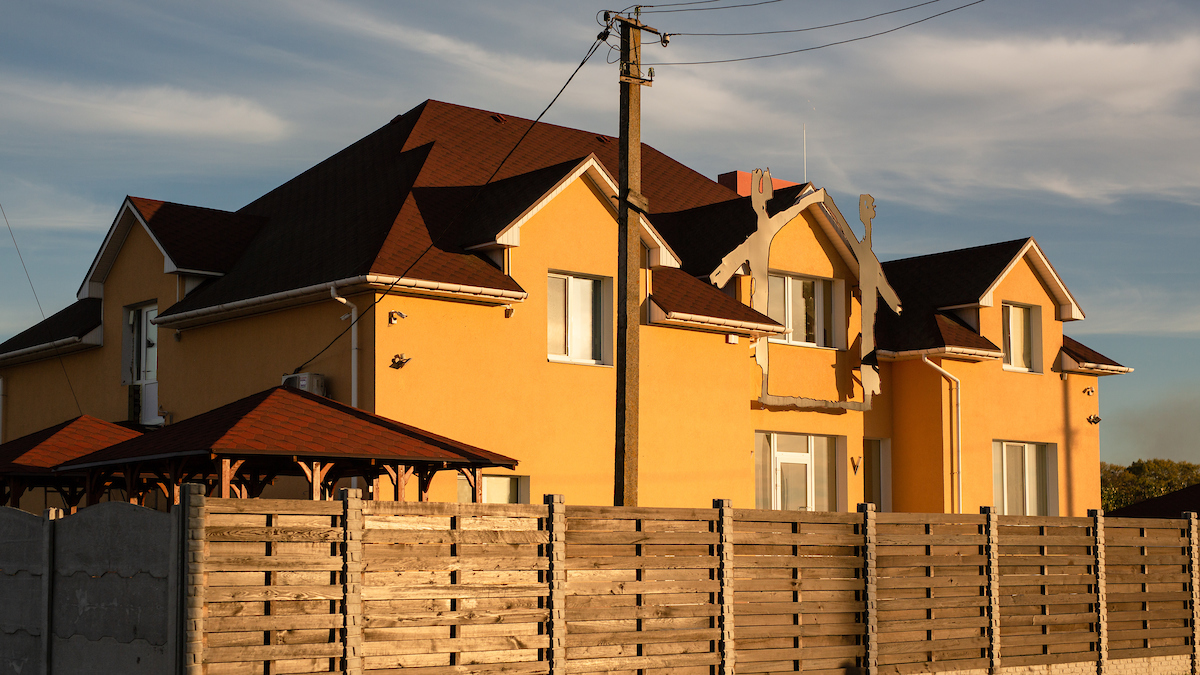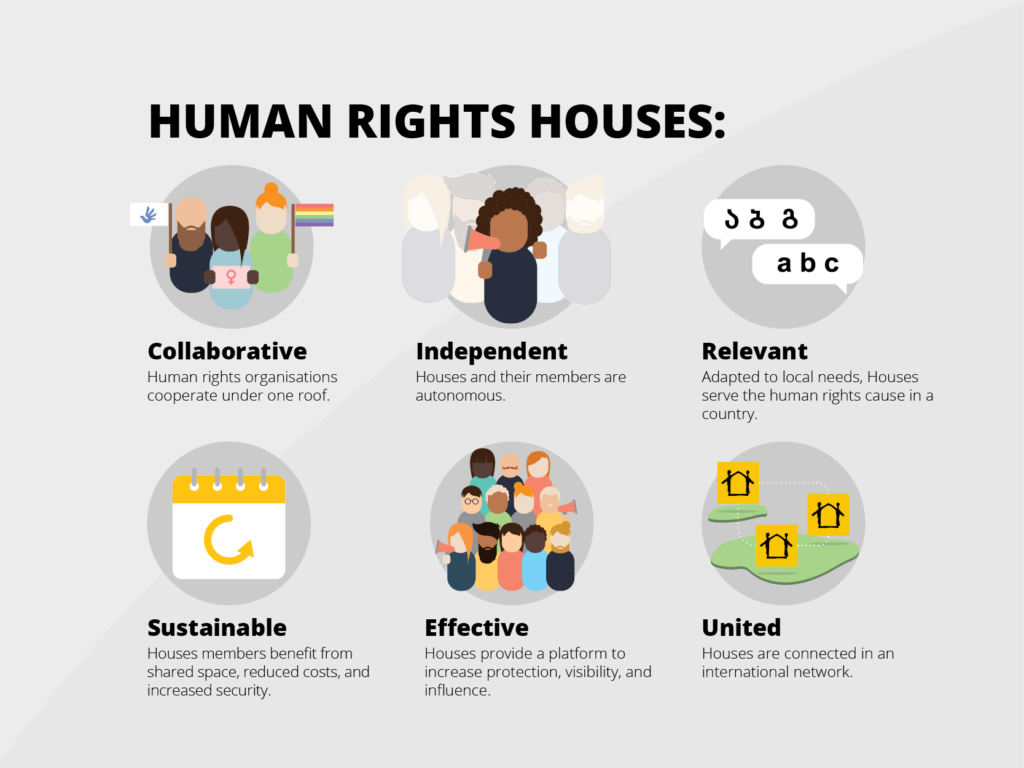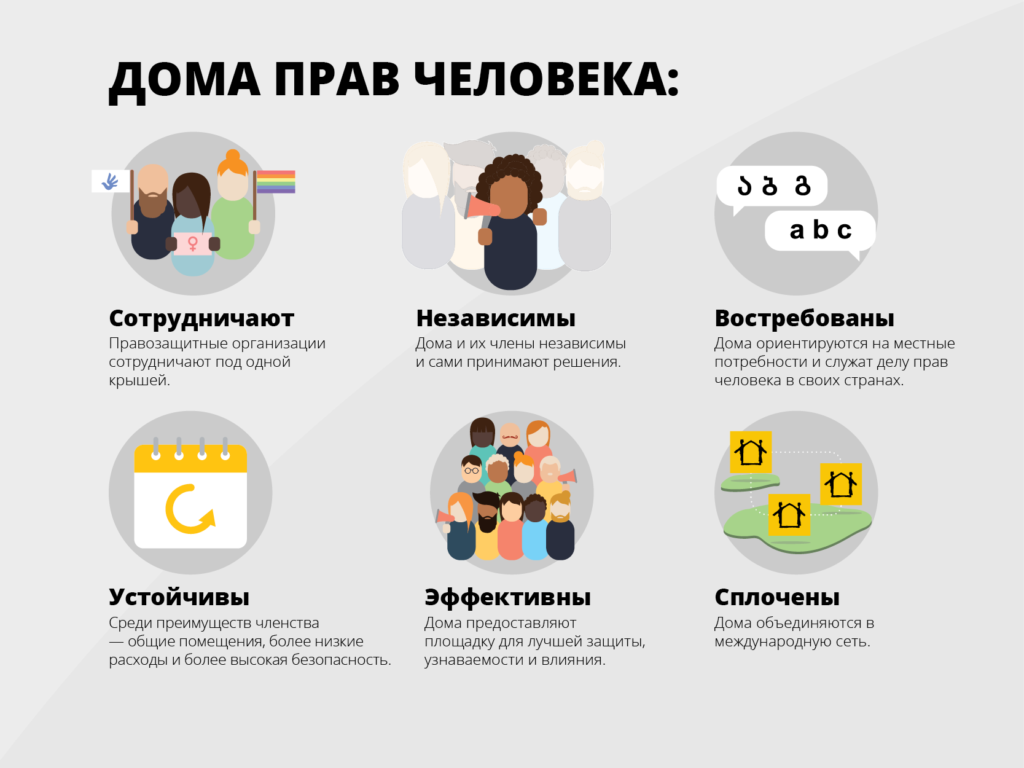Human Rights Houses are coalitions of civil society organisations working together to advance human rights at home and abroad.
Human Rights House Foundation (HRHF) works with civil society organisations to establish and support Human Rights Houses as bases for human rights activities.
Read more: Establishing a Human Rights House – Manual
The structure and focus of each House reflect local needs and local contexts. This empowers Houses to help strengthen the local human rights community as a whole, enhancing the national capacity to uphold and protect human rights and independent civil society.
We connect Human Rights Houses, building an international network for change and freedoms.
Membership in Human Rights House provides solidarity as well as opportunities for collaboration and networking. Working together, member organisations have a greater opportunity to influence the human rights agenda. House members are also able to more effectively pool resources and benefit from reduced administrative costs. Finally, in a time of closing space for civil society and attacks against human rights defenders, House membership offers a level of security and protection from increased threats and harassment.
HRHF’s Human Rights House concept is built around the enduring values of solidarity and partnership. It remains as important today as when the first House opened its doors in Oslo in 1989.
While each Human Rights House is unique, all houses are collaborative, independent, relevant, sustainable, effective, and united.
The above graphic can be downloaded in English and Russian for print.
Collaborative
Human Rights Houses are collaborative. They provide an environment for member organisations to work together and generate synergies while advancing common human rights objectives.
Independent
Human Rights Houses are independent. They uphold democratic values and maintain no affiliations with political parties or religious institutions. Houses are places for open debate and diversity of opinion. Member organisations united in a House maintain their own autonomy and often work on different areas of human rights, enabling the Houses to reflect the wider human rights community.
Relevant
Human Rights Houses are relevant. The structure, membership, focus, and agenda of Houses reflect local needs. HRHF supports the establishment of Houses based upon guidelines and good practice guidance; however, there are no fixed solutions. This flexibility allows Houses to establish models which allow them to cater to the needs of the local human rights community.
Sustainable
Human Rights Houses are sustainable. The process of establishing a Human Rights House is rigorous and requires time and effort. This investment strengthens member organisations and their collaboration and allows Houses to focus on long-term planning and strategizing for long-term viability. Whenever possible, the aim is to own premises for a Human Rights House. Where that is not an option, other alternatives are considered. Houses are funded by donors, national and international NGOs and research institutions, and local government agencies.
Effective
Human Rights Houses are effective. Under the House umbrella, projects and programmes are implemented, activities take place, and services are provided to local communities. Houses are reliable partners committed to the universality of human rights and to defending and protecting the rights of individuals and peoples.
United
Human Rights Houses are united. They are connected by the common values of the universality of human rights and a commitment to defend and protect those rights.




